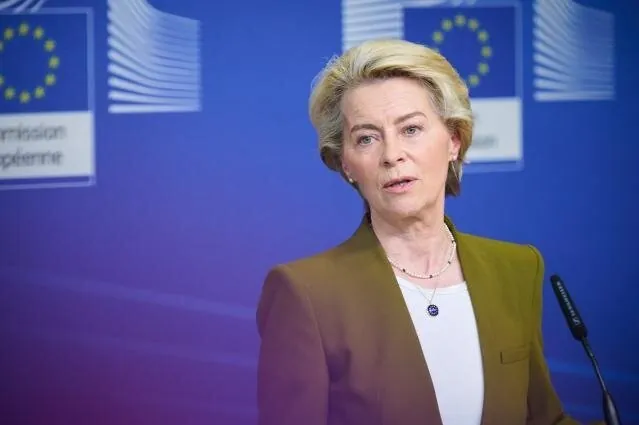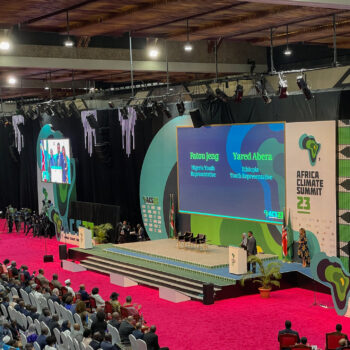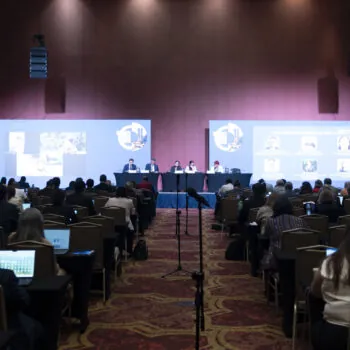On October 23-24, EU leaders will meet to address key geopolitical challenges and strategic priorities for the Union, including Europe’s competitiveness and affordable housing.
- To steer the debate, President von der Leyen sent a letter to heads of state and government in which she reaffirms the commitment to the proposed 90% emissions reduction target by 2040 and places decarbonisation at the heart of a competitive economy. In order to pre-empt national concerns that leaders will likely bring to the EUCO’s table, the letter provides clarity on the Commission’s plans to shield the European economy from unfair competition and mitigate social impacts.
- Intense discussions among Member States now centre on securing guarantees for the enabling conditions of industrial competitiveness — from affordable clean energy and predictable demand to fair trade rules. President von der Leyen’s letter shows the Commission is already planning initiatives to strengthen the business case for industrial investment, with measures on green lead markets, energy access and finance.
- The European housing crisis is a major social and economic challenge. After months of stakeholder engagement, coordinated by the Housing Task Force, the Commission is preparing to publish an Affordable Housing Plan. While housing remains primarily a national competence, this forthcoming Plan is expected to propose unleashing new funding for cohesion policy, loosening state aid rules and suggest new measures to address the financialisation of the European housing stock. Leaders are likely to support the Commission’s Plan but push for further simplification of planning and construction processes.
- Months of stalling on the adoption of the EU’s 2040 climate target and the 2035 NDC have left little time for EU leaders to break the current impasse and reach an agreement ahead of COP30. A successful outcome from the EUCO this week will not only overcome the political stalling but also give forward guidance on the post-2030 climate and energy framework. Failure to do so risks casting the entire 2040 target process into disarray, undermining the much-needed certainty for investors and industry, weakening the alignment between climate ambition and competitiveness, and risking Europe’s credibility as a global standard setter in the green transition.
Story
EU leaders are heading into the European Council meeting with a push to more closely align competitiveness with the green transition and to send a clear signal regarding Europe’s domestic and international climate trajectory, just weeks before the start of COP30. The stakes are high: reducing dependence on volatile fossil fuel markets, scaling clean technologies, setting decarbonisation standards globally, and cutting energy costs will determine Europe’s long-term productivity and strategic autonomy, providing certainty to investors and securing a first-mover advantage.
Key for a successful outcome is to design a political mandate with economic and social guarantees that Member States can rely on to successfully meet the EU’s climate target for 2040. In doing so, they would pave the way for ministers to confidently adopt a science-based 90% emissions target before COP30. Failure to do so would likely result in continued deadlock at the ministerial level. Missing the COP momentum could delay negotiations indefinitely, complicating the planning of the post-2030 delivery framework, for which the Commission is expected to publish legislative proposals in Q3-Q4 next year. Delaying the post-2030 framework would only make the current targets harder to achieve.
The sine qua non condition for national leaders to back the 90% climate target is providing reassurance for the viability of industrial decarbonisation, with several Member States raising concerns over costs, competitiveness and exposure to unfair competition. The Commission has positioned its upcoming Industrial Accelerator Act and related initiatives — including lead markets for clean materials, an EU preference in public procurement, CBAM reform and stronger safeguards against unfair trade — as key to restoring confidence and attracting investment. A central question is whether leaders will signal support for this agenda and restore momentum for the Clean Industrial Deal delivery, as called by more than 130 businesses, industry associations and investors.
Particular attention should go to the banner of technology neutrality, under which several Member States are advocating greater flexibility in the upcoming CO₂ standards review for cars and vans. Options such as biofuels, range extenders and hybrid technologies are being promoted as complementary to the shift toward e-mobility. There is a thin line to walk between accepting a few flexibilities to keep Member States and economic players on board and completely diluting the trajectory towards decarbonisation. The debate will show whether leaders, and particularly Presidents Costa and von der Leyen, can balance this push for flexibility with the need to maintain a stable regulatory framework and credible trajectory to implement the European Green Deal.
Finally, leaders will want clear guarantees to manage the social impacts of the green transition, particularly given rising concern over the implications of the emission trading system for buildings and road transport (ETS2) for households and vulnerable sectors, as well as high energy prices. The housing crisis does not stand alone, and with buildings accounting for just under 40% of total GHG emissions in the EU, how we solve the European housing crisis is also a question of addressing the EU’s cohesion and competitiveness. The Commission is already proposing initiatives to address the cost-of-living crisis, including measures in its Action Plan on Affordable Energy and the forthcoming Citizens’ Energy Package. The Affordable Housing Plan is a key opportunity to drive forward financing opportunities for the reuse and repurposing of existing building stock. Member States can support and build on these actions to enhance social acceptability while ensuring the SCF is delivered and ETS2 is not delayed.
Quotes
Elisa Giannelli, Programme Lead, E3G Brussels, said:
“After months of stalling on the EU’s 2040 climate target, leaders now have a narrow window to break the deadlock and send a clear signal ahead of COP30. A deal this week would not only restore momentum but also provide the forward guidance Europe needs for its post-2030 climate and industrial framework. Failing to act would erode investor confidence, weaken the link between climate ambition and competitiveness, and risk Europe’s strategic advantage as a global standard setter in the green transition.”
Luke O’ Callaghan-White, Programme Lead, E3G Brussels, said:
“The solution to the European housing crisis is not just more supply, alone. By maximising the use of existing buildings, and prioritising the preservation, renewal and adaptive reuse of the existing building stock, the Affordable Housing Action Plan could be a guiding tool to address the housing shortage. EU leaders should support the Commission’s proposed Action Plan but ensure that it is not simply a vehicle to cut red tape for more supply but rather that it contains strong retrofit measures to build the resilient homes that Europe needs.”
Domien Vangenechten, Programme Lead, E3G Berlin, said:
“Europe’s competitiveness depends on making decarbonisation investable. After a period of uncertainty, leaders now have a chance to give industry and investors a clear signal with the 2040 target – and to back it with the policies that cut energy costs, unlock finance, build markets and create good jobs in clean industries. That’s what a credible European competitiveness agenda looks like.”
Available for comment
Elisa Giannelli – E3G Programme Lead (EN, IT, FR) – EU politics, 2040 target Elisa.Giannelli@e3g.org | + 32 (0) 494 58 48 29
Domien Vangenechten – E3G Programme Lead (EN, NL) – Industry decarbonisation, competitiveness, industrial policy Domien.vangenechten@e3g.org | +32 (0) 474 87 18 27
Luke O’ Callaghan-White – E3G Programme Lead (EN) – Energy and housing Luke.ocallaghanwhite@e3g.org | +32 (0) 49 52 94 331
Notes to Editors
E3G is an independent climate change think tank with a global outlook. We work on the frontier of the climate landscape, tackling the barriers and advancing the solutions to a safe climate. Our goal is to translate climate politics, economics and policies into action. About – E3G
For further enquiries email press@e3g.org or phone +44 (0)7783 787 863.
Register for our journalist WhatsApp briefing service to receive updates and analysis for key geopolitical and climate events over 2025 on the road to COP30: E3G WhatsApp registration for journalists – E3G.


